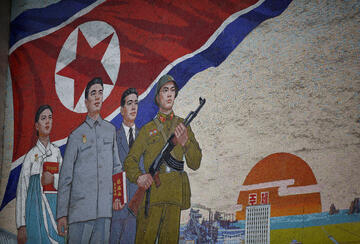Afghanistan
Albania
Algeria
Andorra
Angola
Antigua & Barbuda
Argentina
Armenia
Australia
Austria
Belgium
Belize
Brunei
Canada
Caribbean
China
Denmark
Eastern Europe
Northeast Asia
Azerbaijan
Bahamas
Bahrain
Bangladesh
Benin
Bolivia
Bosnia & Herzegovina
Burma
Central America
Central Europe
Costa Rica
Cyprus
Czech Republic
Estonia
Fiji
Japan
Mexico
Oceania
Portugal
Barbados
Belarus
Bhutan
Botswana
Brazil
Bulgaria
Cambodia
Egypt
El Salvador
Finland
France
Germany
Iberian Peninsula
Kiribati
Mongolia
North America
South Asia
Spain
United States
Burkina Faso
Chile
Croatia
Cuba
East Timor
Georgia
Greece
Guatemala
Hungary
India
Iran
Latvia
Marshall Islands
North Korea
Scandinavia and Baltic Rim
South America
Southeast Asia
Burundi
Colombia
Dominica
Honduras
Iceland
Indonesia
Iraq
Kazakhstan
Kosovo
Liechtenstein
Lithuania
Maldives
Micronesia
South Korea
Western Europe
Cameroon
Dominican Republic
Ecuador
Ireland
Israel
Kyrgyzstan
Laos
Macedonia
Nauru
Nepal
Nicaragua
Norway
Poland
Taiwan
Cape Verde
Grenada
Guyana
Italy
Jordan
Malaysia
Moldova
Montenegro
New Zealand
Pakistan
Panama
Slovakia
Sweden
Central African Republic
Haiti
Kuwait
Luxembourg
Palau
Paraguay
Philippines
Romania
Russia
Slovenia
Sri Lanka
Chad
Jamaica
Lebanon
Malta
Papua New Guinea
Peru
Serbia
Singapore
Switzerland
Tajikistan
Comoros
Libya
Monaco
Samoa
St. Kitts & Nevis
Suriname
Thailand
Turkmenistan
D.R. Congo
Morocco
Netherlands
Solomon Islands
St. Lucia
Ukraine
Uruguay
Vietnam
Congo
Oman
San Marino
St. Vincent & the Grenadines
Tonga
Uzbekistan
Venezuela
Côte d'Ivoire
Qatar
Trinidad & Tobago
Tuvalu
United Kingdom
Djibouti
Saudi Arabia
Vanuatu
Vatican City
Equatorial Guinea
Syria
Eritrea
Tunisia
Ethiopia
Turkey
Gabon
United Arab Emirates
Gambia
Yemen
Ghana
Guinea
Guinea-Bissau
Kenya
Lesotho
Liberia
Madagascar
Malawi
Mali
Mauritania
Mauritius
Mozambique
Namibia
Niger
Nigeria
Rwanda
Säo Tomé & Príncipe
Senegal
Seychelles
Sierra Leone
Somalia
South Africa
South Sudan
Sudan
Swaziland
Tanzania
Togo
Uganda
Zambia
Zimbabwe
The Americas
Asia-Pacific
Europe
Middle East and North Africa
Russia and Eurasia
Sub-Saharan Africa
2024 MIP Class
Admissions
Aging
Agricultural trade
AHPP Working Paper Series
Alumni
APARC In-House Series
Arms Control
Biofuels
Capstone
CDDRL 20th Anniversary
CDDRL Research in-brief
CDDRL Seminar Write-ups
Children's health
Class of 2024
Class of 2025
Conference Blog
Corruption
Courtesy Faculty
Democracy promotion
Early Childhood Development
Entrepreneurship Inside Government
European Union
GKC
GKC Leadership
Globalization
Graduation
Hacking for Defense (H4D)
Health
Health and the Environment
Hypertension
In the Classroom
Inclusion and Exclusion
Inequality
Infrastructure
International Law
Internship Blog
Israel Fellows
Masters in International Policy
Meet the Class
Migration and Citizenship (Society)
National Security Innovation Scholars
Obesity
Palm Oil
Profile
Race
Rule of Law
SAI
Shorenstein APARC Policy and Working Papers
Smoking
Social Media Lab
Staff
Takedown
Teaching Team
Technology
Technology, Innovation, and Great Power Competition
Vision Care
Agriculture
Agriculture policy
Arms Smuggling
Borders
Cap and Trade
Comparative effectiveness research
Culture
Democracy
Disaster response
Health care institutions
HIV/AIDS
Kyoto Protocol
Population health
State-building
Biosecurity
Business
Demographics
Diabetes
Elections
Health policy
Media
World Bank
Aquaculture
Bioterrorism
Cleantech
Coal
Discrimination
Disease
Health Care Reform
Human Rights
Investment
Military
Protectionism
World Trade Organization
Diplomacy
Economic Affairs
Electricity
Global Health
Homeland Security
Information Technology
Intelligence
NATO
Civil Wars
Climate
Education
Energy and Climate Policy
Ethnicity
Foreign Aid
Health Care
Institutions and Organizations
Negotiation
Climate change
Conflict
Energy Infrastructure
Entrepreneurship
Foreign Policy
Gender
Health Outcomes
Peacekeeping
Policy Analysis
Energy Services
Food Markets
History
Migration and Citizenship
Crime
Cybersecurity
Deforestation
Fossil Fuels
Islam
Nutrition
Trade
Fisheries
Food Security
Public Health
Drug trafficking
Hunger
Natural gas
Publication Series
Shorenstein APARC Studies with Stanford University Press
Innovation
Nuclear Energy
Religion
Nuclear policy
Poverty
Natural Resources
Renewable Resources
Science and Technology
Kidnapping
Oil
Water
Sustainable development
Missiles
Nuclear Risk
Nuclear Safety
Terrorism
Torture convention
Violence
Governance
International Relations
Health and Medicine
International Development
Security
Energy
Environment
Society
Walter H. Shorenstein Asia-Pacific Research Center
Center for Health Policy / Department of Health Policy
Center for International Security and Cooperation
Center on Democracy, Development, and the Rule of Law
Freeman Spogli Institute for International Studies
The Europe Center
Center on Food Security and the Environment
Stanford Center at Peking University
Bechtel Conference Center At Encina Hall
Internal Center (Content Staging)
Cyber Center
Center on China’s Economy and Institutions
Program on Energy and Sustainable Development
Korea Program
Southeast Asia Program
Stanford Program on Regions of Innovation and Entrepreneurship
China Program
Stanford Program on International and Cross-Cultural Education
Global Affiliates Program
Asia Health Policy Program
Program on Human Rights
Rural Education Action Program
Arab Reform and Development Program
Draper Hills Summer Fellows Program
Program on Poverty and Governance
Japan Program
Stanford International Crime and Violence Lab
Austrian and Central European Program
European Governance
Europe and the Global Economy
Migration
France and the Francophone World
Iberian Studies Program
Industrial Affiliates Program
Program on American Democracy in Comparative Perspective
Taiwan Program
GDPI
Student Programs
Global Populisms
Ford Dorsey Master's Program in International Policy
Leadership Academy for Development
Public Problem Solving Program
Internet Observatory Program
Cyber GTG
Mappingmilitants cisac
European Security Initiative
Russian Power and Purpose in the 21st Century
Stanford Impact Labs
Program on Turkey Website
Stanford Existential Risks Initiative
Sipr
REDI
World House
Leadership Network for Change Program
Cyber Test
Governance of Emerging Technologies
Stanford U.S.-Russia Forum
IUC Program
IUC Japan Program
GKC Program
TIP Program
DAL Program
Jan Koum Israel Studies Program
Abstracts
Blogs
Books
Book Chapters
Case Studies
Conference Memos
Commentary
Dissertations
Journal Articles
News
Policy Briefs
Q&As
Testimonies
White Papers
Reports
Working Papers
Annual Reports
Brochures
Newsletters










